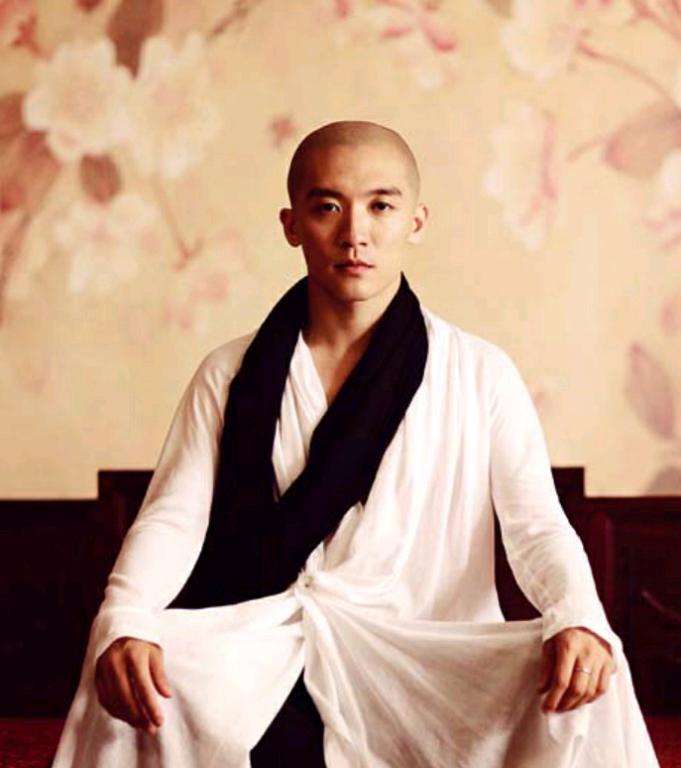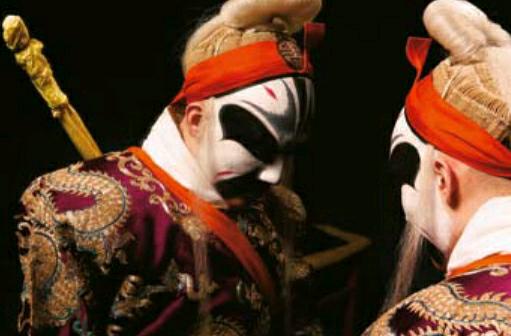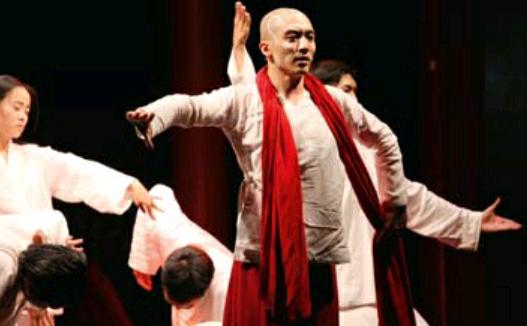Peking Opera Transformer
2015-07-23byWangJiayin
by+Wang+Jiayin
Qiu Jirong was born into a family of opera artists, and as a young child he apprenticed under his grandfather Qiu Shengrong (1915-1971), founder of the Qiu school of Peking Opera, and later learned from his father, Qiu Shaorong (1957-1996). Tirelessly reaching for perfection with each performance, the younger Qiu devoted himself to mastery of myriad styles of music and dance as he honed his diverse artistic style based on traditional patterns but fusing chanting, world music and modern dance.
No Labels
Peking Opera features four types of roles: sheng (male), dan (female), jing(painted-face), and chou (clown). The most representative version of the painted-face roles is the school founded by Qiu Shengrong due to his expertise in singing, one of the four basic skills along with emoting, speaking and acrobatics. Qiu improved on traditional singing techniques, contributing remarkably to Peking Opera by enriching the expressiveness of the vocals.
Qiu Jirong began abstaining from normal childhood indulgences at age nine. “I didnt really have a choice in the matter as the only boy in the family,” Qiu reveals.
As grandson of the founder of the Qiu school of Peking Opera, he shoulders the heavy burden of inheriting the technique yet remaining down to earth.
A child of the 1980s, its difficult to pinpoint where Qius passion lies. He enjoys Western dancing styles and modern dance.“Im just a guy who is crazy about art,” he declares. “I get labeled mostly because of my roots. Some think that what I do breaks tradition of Peking Opera. Im simply trying to be creative. People are either conservative or creative. I prefer the latter.”
Struggle
Different eras bring changing cultural trends. Today, most people choose movie theaters over traditional entertainment such as cross talk. And more Chinese people patronize European operas than Peking Opera.
In Qius opinion, Peking Opera belongs in a museum, under state protection. Its practitioners are nostalgic for its zenith, hoping it can one day reach another summit. And so they struggle.
When Qiu Jirong was stuck at a crossroads of inheriting the traditional art, he was struck by inspiration from Michael Jackson. He was completely in awe of Jacksons music, dancing and style. Once he began injecting styles of the King of Pop into Peking Opera, he couldnt stop. He blazed a new trail of his own by integrating modern footwork and tunes with the performance and vocals of Peking Opera.“I love dance and body language, which can express ones understanding of life in total silence,” he explains. “I felt like I was elevating myself, which I could hardly do with Peking Opera alone. Ive always wanted to be true to myself.”
On the TV talent competition So You Think You Can Dance 2014, he wowed the jury and audience with his unique body language featuring both Peking Opera and popping.
As for his artistic form, he frankly states that its still a work in progress. “Im not satisfied with my work last year,” he declares. “Some of the moves didnt yet connect smoothly. Its hard to regulate the intensity. Different artistic elements should be integrated properly.”
Pursuit of Perfection
Qiu is a Virgo and constantly pursues perfection. “Deceiving others is the same as deceiving yourself,” he often says.“Expectations determine your gains, but you still shouldnt push yourself too hard,”he continues. “When it comes to pop art, looking good and acting cool can cover many flaws. I cant stand ‘small fresh meat(young, handsome pop idols) nor their songs. Are they worth admiring? Their songs lack melodies as well as artistic taste. Ive always admired artists such as dancer Yang Liping and Leslie Cheung (a late well-known singer from Hong Hong), who really touch their fans with their devotion to art and their work from their souls.”
His disdain for some modern art is born of his self-discipline and hard work.
“I still have a long way to go to become an artist,” he admits. “I didnt inherit everything from my grandfather. I must blaze my own path. I admire people like Dou Wei, one of Chinas leading rock stars. If hes not well-received, he rebuilds everything.”
Straight to the Point
Qiu started singing at age nine and grew up with his mother when his father passed away a year later. “My mother is an ordinary, simple woman,” he explains. “At first, she didnt really like what I was doing, but she has always been supportive.”
Lately, he has been busy rehearsing, but he plans on releasing some new songs including “In the Silence of Night” adopting the lyrics of the poem by Li Bai, an eminent poet of the Tang Dynasty (618-907). The rhythm of the Tang poet feeds the ears, depicting a night view of silence with a bright moon hanging high in the sky. Qiu combined his words with melodies of both the synthesizer and pipa, a Chinese lute, injecting traits of both Peking Opera and pop songs.
As for defining his work, he hesitates.“Art is universal. Each of my movements reflects a combination of Chinese and Western elements in a Qiu style, which can never be replicated identically by anyone. Its my way of interpreting my ideas and inspiration, which is not a ‘brand, but its comparatively independent.”
“Many people have asked me ‘what if you were born into an ordinary family?I say, ‘I would still be who I am and do what I like. The truth of the matter is that there is no ‘if. I cannot live without Peking Opera and dance,” Qiu asserts.